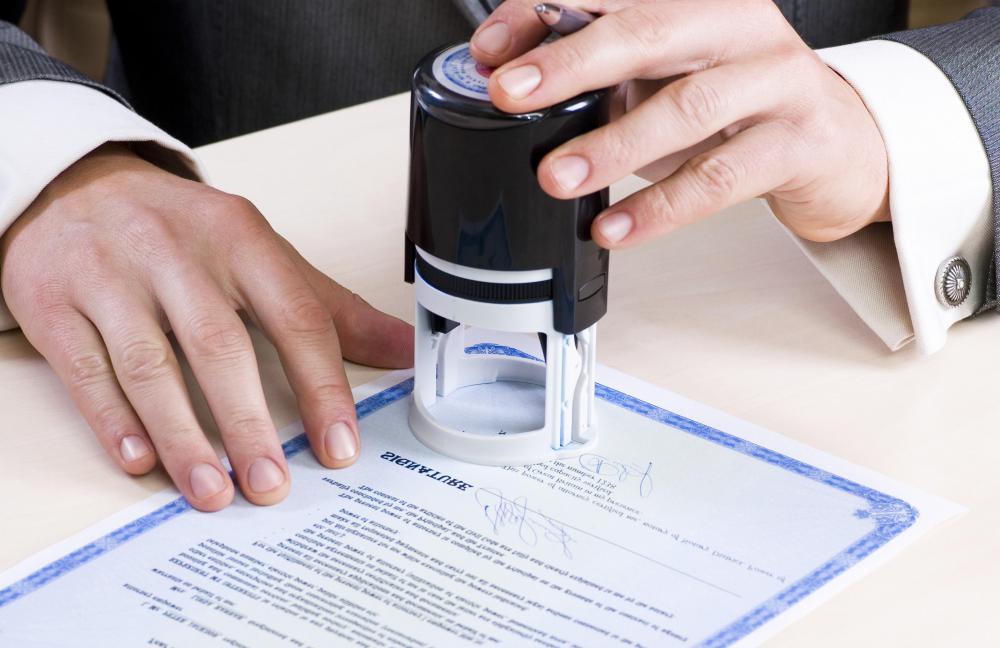At PracticalAdultInsights, we're committed to delivering accurate, trustworthy information. Our expert-authored content is rigorously fact-checked and sourced from credible authorities. Discover how we uphold the highest standards in providing you with reliable knowledge.
What does a Judicial Officer do?
A judicial officer generally presides over matters concerning the law, often in a court of law. The judicial officer job description varies somewhat, however, depending on the officer's specific career path and the location of the job. Decision-making, mediation, and familiarity with the letter of the law are the most important skills a judicial officer can acquire. Some of the more common judicial officer jobs are judge, magistrate, and notary public.
A judge assumes a leadership role in the courtroom. In trial jury cases, a judge will ensure all proper legal protocol is conducted as evidence is presented and witnesses are called. In other cases, a judge will hear facts in evidence and possesses the authority to make a decision regarding the outcome of the matter based on his or her legal interpretation.

Judges are present in both criminal and civil legal cases. Appellate judges review legal cases under appeal and decide whether the outcome is fair and impartial. Judges of higher regional appellate courts, known as justices, can also contest the validity of an outcome and legal support for existing laws.
Another well-known judicial officer is the magistrate. The role of the magistrate can vary by country. This professional can deal with pretrial issues, misdemeanor criminal cases, or small-claims civil cases. Magistrates do not generally rule in felony criminal cases or major civil cases. Depending on their global location, magistrates may also serve as registrars, administer licenses, act as a public information source, conduct civil unions, sentence offenders, grant search warrants, or review legal cases.

The oversight of legal documents falls under the realm of notaries. Notaries may help draft a document and will also act as a witness for its legal fulfillment. Affidavits, oaths, business contracts, witness statements, deeds, and wills or other estate documents may all be handled through a notary. As such, the notary can work in private matters or in more far-reaching judicial matters.
Other judicial officer occupations include bail justices, who are responsible for matters pertaining to bail, and justices of the peace. The latter’s role is more localized and may overlap with that of either a magistrate or a notary, dependent on location. Duties can run from deciding traffic violation cases to conducting civil marriages.
Judicial officers can be either appointed or elected. The method of attaining office usually depends on the type of job being sought. In all cases, a judicial officer must take an ethical oath and be in good standing with the law he or she is sworn to serve and uphold.
AS FEATURED ON:
AS FEATURED ON:












Discuss this Article
Post your comments